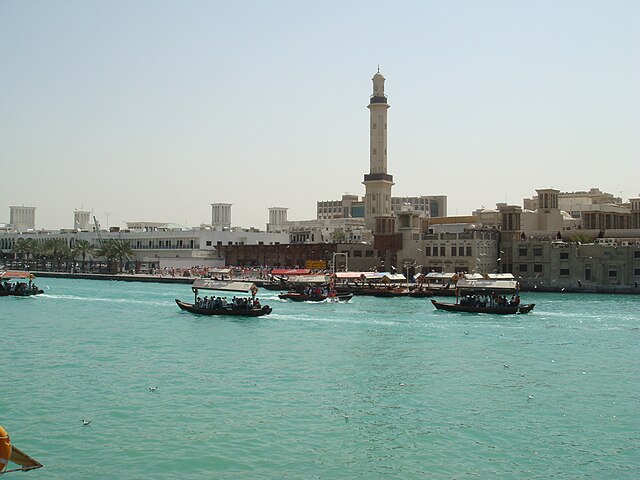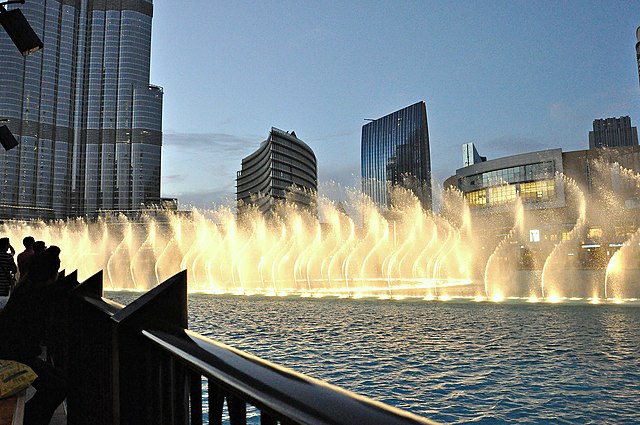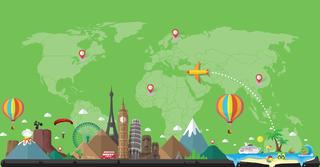Dubai is the most populous city in the United Arab Emirates (UAE), and the capital of the Emirate of Dubai, one of the seven emirates that make up the country. Over the past few decades of development, Dubai has emerged as a global city and the business hub of the Middle East. The city has become iconic for its architecturally daring skyscrapers, man-made islands and canals.
Dubai
The Gold Souk is a traditional market (or souk) located in the heart of Dubai's commercial business district in Deira, near metro station Al Ras. The souk consists of over 300 retailers that trade almost exclusively in jewellery. By some estimates, approximately 10 tons of gold is present at any given time in the souk.
Historically, the Dubai Creek divided the city into two main sections, Deira and Bur Dubai. It was along the Bur Dubai creek area that members of the Bani Yas tribe first settled in the 19th century, establishing the Al Maktoum dynasty in the city. Today residents and tourists still use motorized water taxis to cross the creek.
Dubai
The Palm Jumeirah is an artificial archipelago shaped as a stylized palm tree seen from above. It is the first offshore development of its kind and was said to be the 8th wonder of the world. A monorail runs from Gateway station on the mainland to the Atlantis Hotel located at the end of the palm.
Dubai
The Burj Khalifa has a roof height of 828 m (2,717 ft), making it the current tallest building in the world. The design is derived from Islamic architecture. There is an outdoor observation deck named At the Top. Burj Khalifa is surrounded by an 11 ha (27-acre) park. The complex is located at metro station Burj Khalifa.
The Dubai Fountain is the world's largest choreographed fountain system set on the man-made Burj Khalifa Lake. The fountain is animated with performances set to light and music. Performances take place at 1:00 pm and at 1:30 pm in the afternoon as well as every 30 minutes from 6 pm to 11 pm in the evening.


































